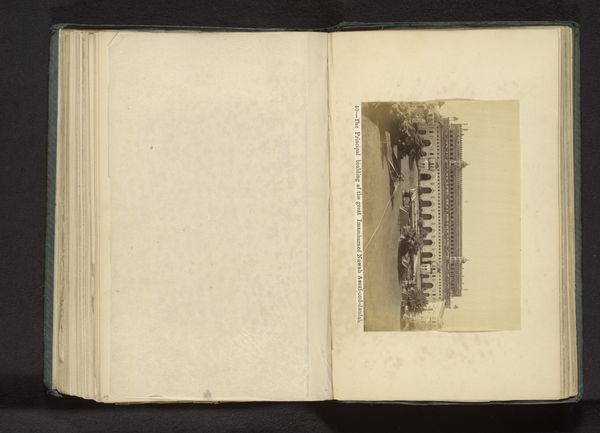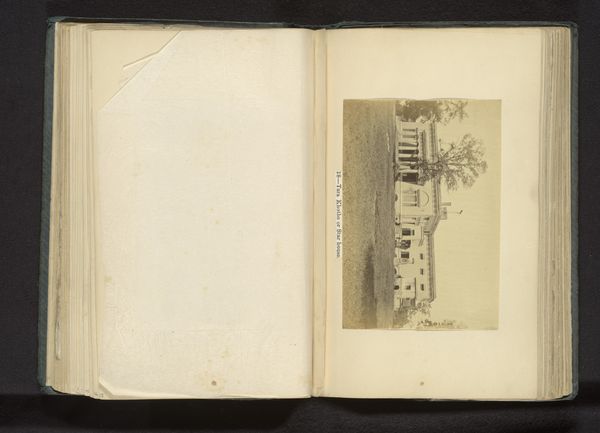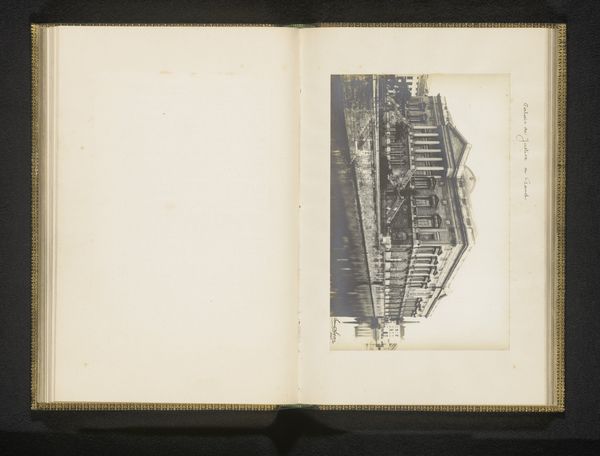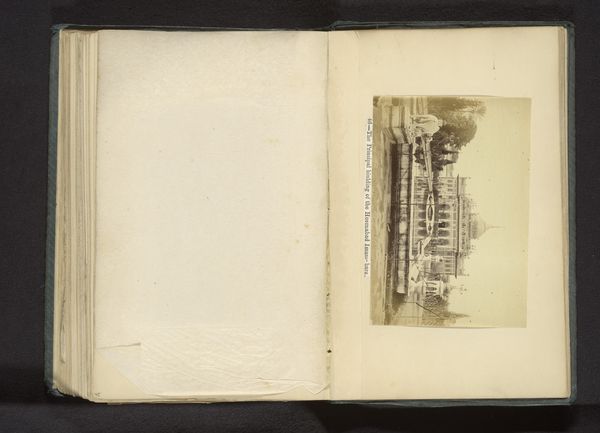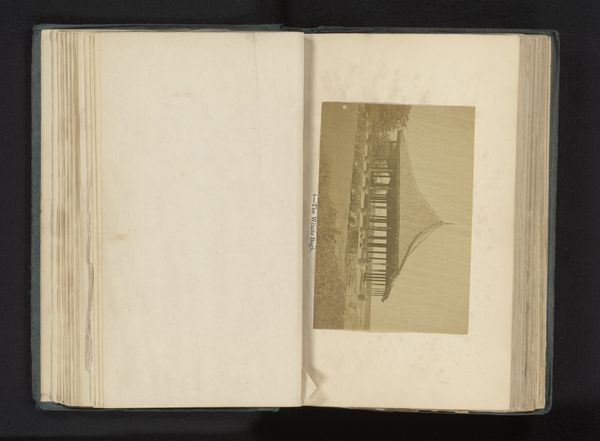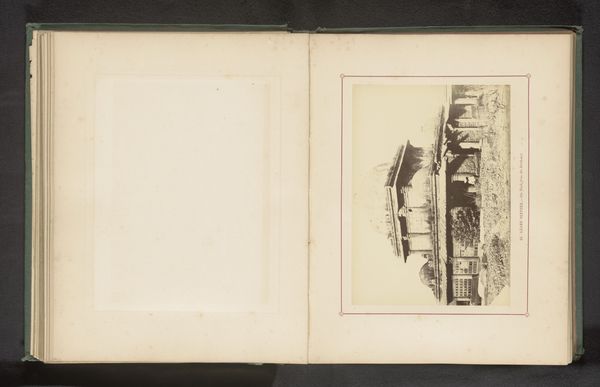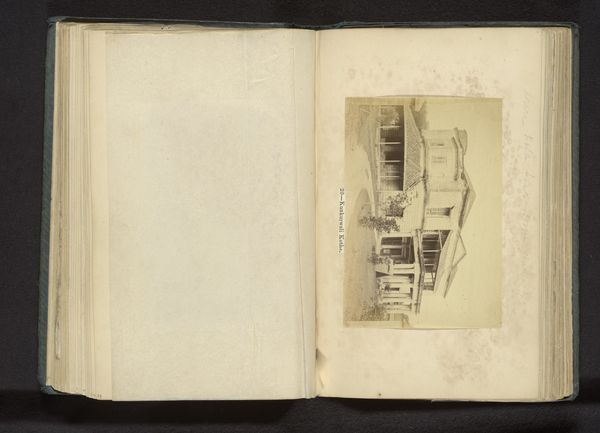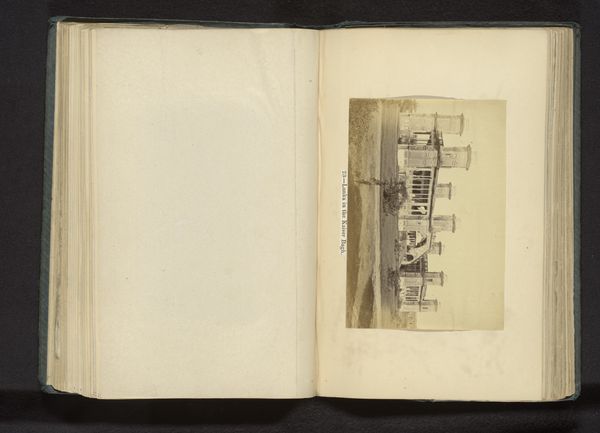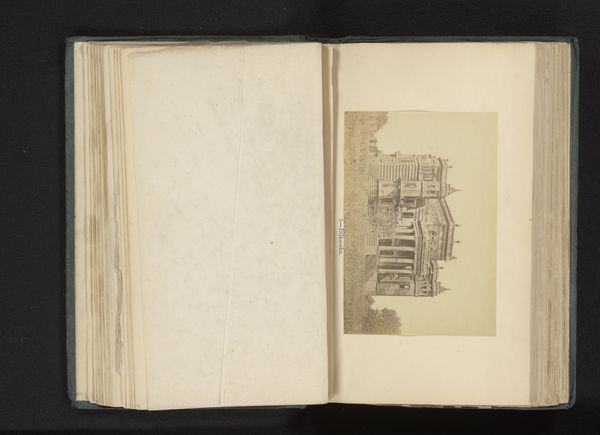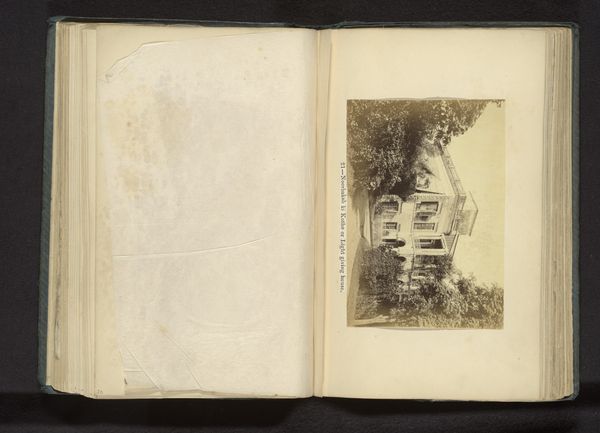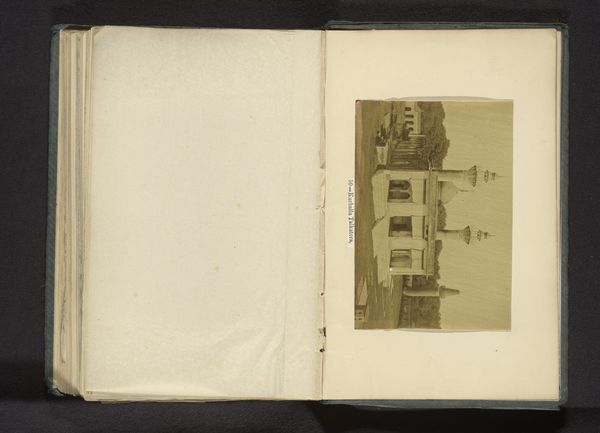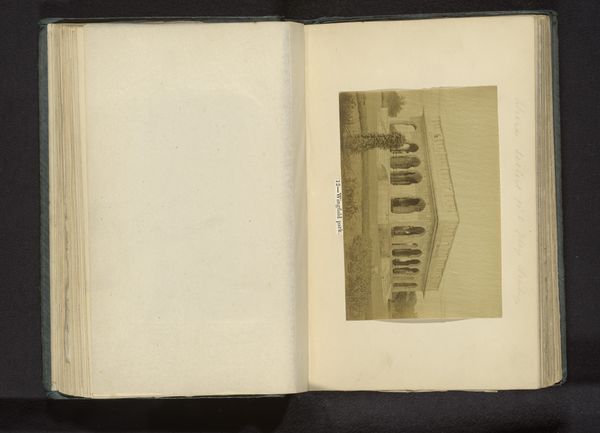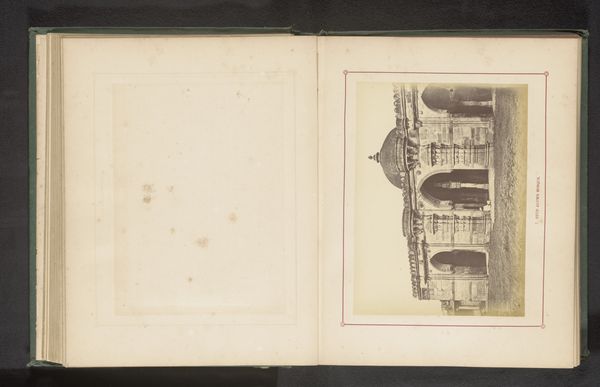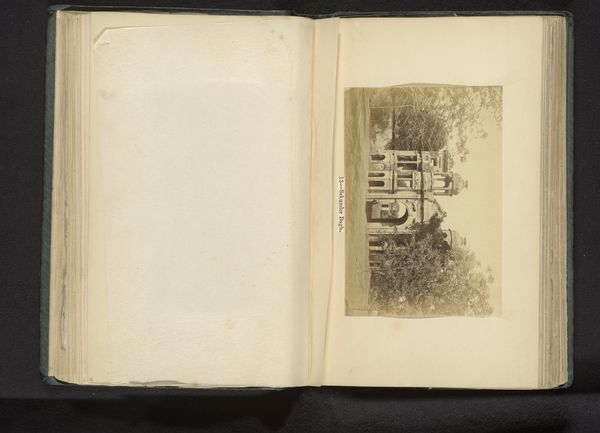
print, photography
# print
#
landscape
#
photography
#
orientalism
Dimensions: height 102 mm, width 154 mm
Copyright: Rijks Museum: Open Domain
Editor: This is a photograph titled "Gezicht op een huis in Lucknow," taken before 1874 by Darogha Ubbas Alli. The image, presented as a print in a book, depicts a building that strikes me as very imposing yet serene, given its placement in what seems like a very manicured garden. How would you interpret this work, particularly considering its place in history? Curator: It's fascinating how photography at this time participated in constructing particular narratives about places like Lucknow. Given the "orientalism" tag, we have to consider how images like these were used by colonial powers. Were these images intended to simply document, or were they tools used to exoticize and other the East? How do you think the composition plays into that? Editor: Well, the building is clearly the focus, set against this almost artificially perfect backdrop. I suppose it could reinforce a sense of order imposed, or perhaps just highlight the architectural marvels of the region? Curator: Precisely. Consider also who would have commissioned and consumed such images. These prints often circulated among elites in Europe, shaping their perceptions of India. Did they appreciate the architectural details, or were they more interested in confirming pre-existing stereotypes? Moreover, understanding the photographer's position as a local provides another layer. Was he simply fulfilling a commission, or was he also making a statement about his own cultural identity? Editor: That's a really good point, actually. It challenges this monolithic idea of "orientalism" and allows space for individual voices and agency, even within restrictive structures. Curator: Exactly! This photograph becomes a fascinating historical artifact, reflecting not only the depicted building, but also the complex socio-political forces at play during that era. I appreciate you noticed how posed it seems. It truly demonstrates how carefully photography could craft perception. Editor: Thanks, I learned a lot about how photography and power intertwine, shaping our views and historical narratives.
Comments
No comments
Be the first to comment and join the conversation on the ultimate creative platform.
